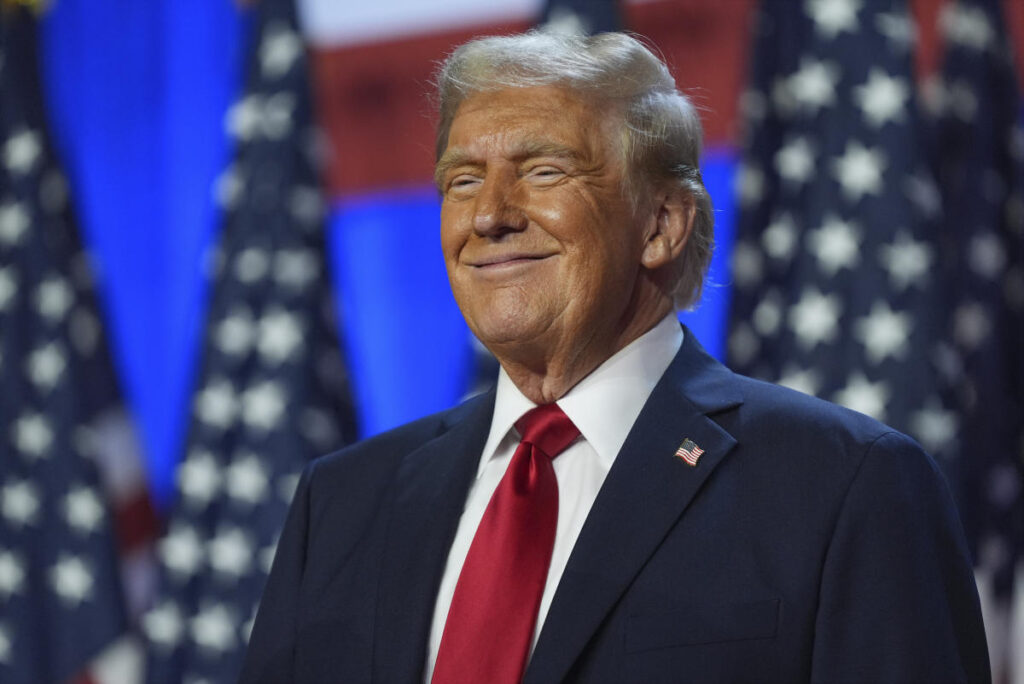Donald Trump’s return to the presidency is anticipated to dive deeper into economic policy discussions, introducing both innovative and traditional proposals. His campaign has already laid out a range of ideas, from the sale of federal land for housing development to specialized tax breaks for tipped workers. These discussions mark a departure from the political norms of the past decade, indicating how Trump’s influence has reshaped the Republican Party and altered the mainstream conservative economic agenda. His unconventional stance has allowed for the emergence of unique policy ideas that could significantly steer the economic landscape if they gain traction under his administration.
One significant area of debate surrounds tariffs, which have not seen legislative action for nearly a century. Trump’s focus on using tariffs to fund tax cuts is being explored by his advisers and Congressional Republicans. Experts note that this approach reflects a shift from the long-standing bipartisan consensus promoting lower tariffs in favor of trade agreements post-World War II. As Congress considers reasserting its legislative power over tariffs, it could not only impact domestic manufacturing but reshape international trade dynamics, calling into question the established norms surrounding American economic policy.
In addition to tariffs, a key proposal discussed in Trump’s platform is the elimination of taxes on tips. Initially dismissed by economists as poorly targeted, this idea has gained unexpected support and political traction, particularly among hospitality workers. As the proposals for tax relief on tip income evolve into formal legislative bills from both Republican and Democratic lawmakers, the push for such tax policy could find its way into broader economic reform packages, illustrating Trump’s impact on legislative priorities even among bipartisan groups.
Moreover, Trump’s presidency might see dialogues surrounding cryptocurrency, particularly with the proposal for a federal Bitcoin reserve. Promoted by pro-crypto advocates like Senator Cynthia Lummis, the idea suggests stockpiling Bitcoin the government seizes from illicit activities. This could lead to a substantial increase in the national cryptocurrency holdings but raises questions about its practical usefulness compared to other assets. Critics of the Bitcoin reserve, including some within the pro-crypto community, argue that focusing on establishing clearer regulations for the cryptocurrency market would be more beneficial than investing in Bitcoin itself.
In addressing housing affordability, Trump’s proposed sale of federal lands to private developers signifies a potential solution for the ongoing housing crisis. As a significant percentage of land in western states remains federally owned, proposals from Republicans like Senator Mike Lee aim to facilitate these sales, contingent upon developers committing to affordable housing units. While both parties acknowledge the urgency of combating the housing shortage, the logistics and suitability of the federal lands for residential construction raise concerns. Additionally, environmental regulations and infrastructure requirements complicate the ability to implement such policies effectively.
The evolving economic policy landscape under Trump’s second term will provide insights into the Republican Party’s future direction, illustrating a move away from traditional tax and regulatory frameworks. As legislators continue to explore these unorthodox policy proposals alongside the longstanding principles of the Republican economic platform, the implications of these discussions will be closely watched. The outcome of these initiatives will not only shape the party’s identity but also reflect broader changing attitudes towards government intervention in the economy, trade, and emerging technologies.

